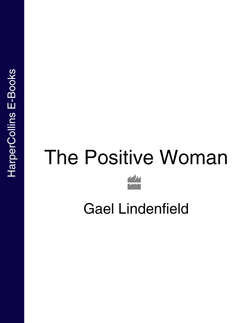Читать книгу The Positive Woman - Gael Lindenfield, Gael Lindenfield - Страница 20
Exercise: The emotional story of my life
ОглавлениеUsing a large sheet of paper and some coloured pens, draw a series of pictures to illustrate typical scenes in your life which you remember with feeling. Don’t attempt a great work of art; you can use symbols and ‘pin-men’, but avoiding words will help you stimulate the right side of your brain, which deals with emotions, and prevent you from making too many clever intellectual interpretations as you remember! (See the following chapter for further explanation about right and left brain hemisphere activity.)
You have already spent some time reviewing your past history, but now is the time to dig just a little deeper into your personal ‘feeling bank’ and see whether there is any what we in the world of therapy call ‘unfinished business’. By this we mean past situations which gave rise to:
– feelings which were never satisfactorily expressed, causing deep-seated tensions which may still be inhibiting the free flow of emotional energy and perhaps hindering you from being as spontaneous and passionate as you would like to be
– thoughts which were not correctly assessed and evaluated and may therefore have replaced your capacity for rationality and impartiality with dogmatic opinions and prejudices.
To assist you in the unearthing of your own ‘unfinished business’, complete the following exercise, which will help you review your emotional life to date. Remember that:
1. In looking for material we are not necessarily looking for ‘the Truth’, i.e. what actually happened, but merely your emotional reaction to your perception of what was going on. For example, your mother may not have been actually baring her teeth and threatening to kill you when you knocked down your brother’s castle or came home late from the disco, but you may have thought she was and therefore felt the terror.
2. We are not necessarily looking for major events or traumas. It is often in the everyday common experiences that most unfinished business lies. Indeed, the very ordinariness of the experiences may have resulted in their not getting the attention that they needed. We say to ourselves:
‘Well, almost everybody has failed an exam in their life, haven’t they?’
‘All sisters quarrel with their brothers.’
‘All my friends’ Dads were just the same.’
‘Every girl is terrified on her first date.’
It’s up to you to decide in which order to look at your life events. Some people like working backwards, while others must always start at the beginning and others prefer working with whatever pops into their head – vive la différence! Just check out with yourself from time to time that sticking to your particular method is working in your best interests and is not just an old habit acquired from someone else with different kinds of aptitudes.
The examples I have given are merely guidelines rather than suggestions and should be used to help you structure your work. The next exercise can be completed over several days or weeks – but don’t leave too long in between sessions or you will lose momentum.
